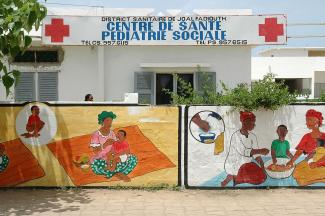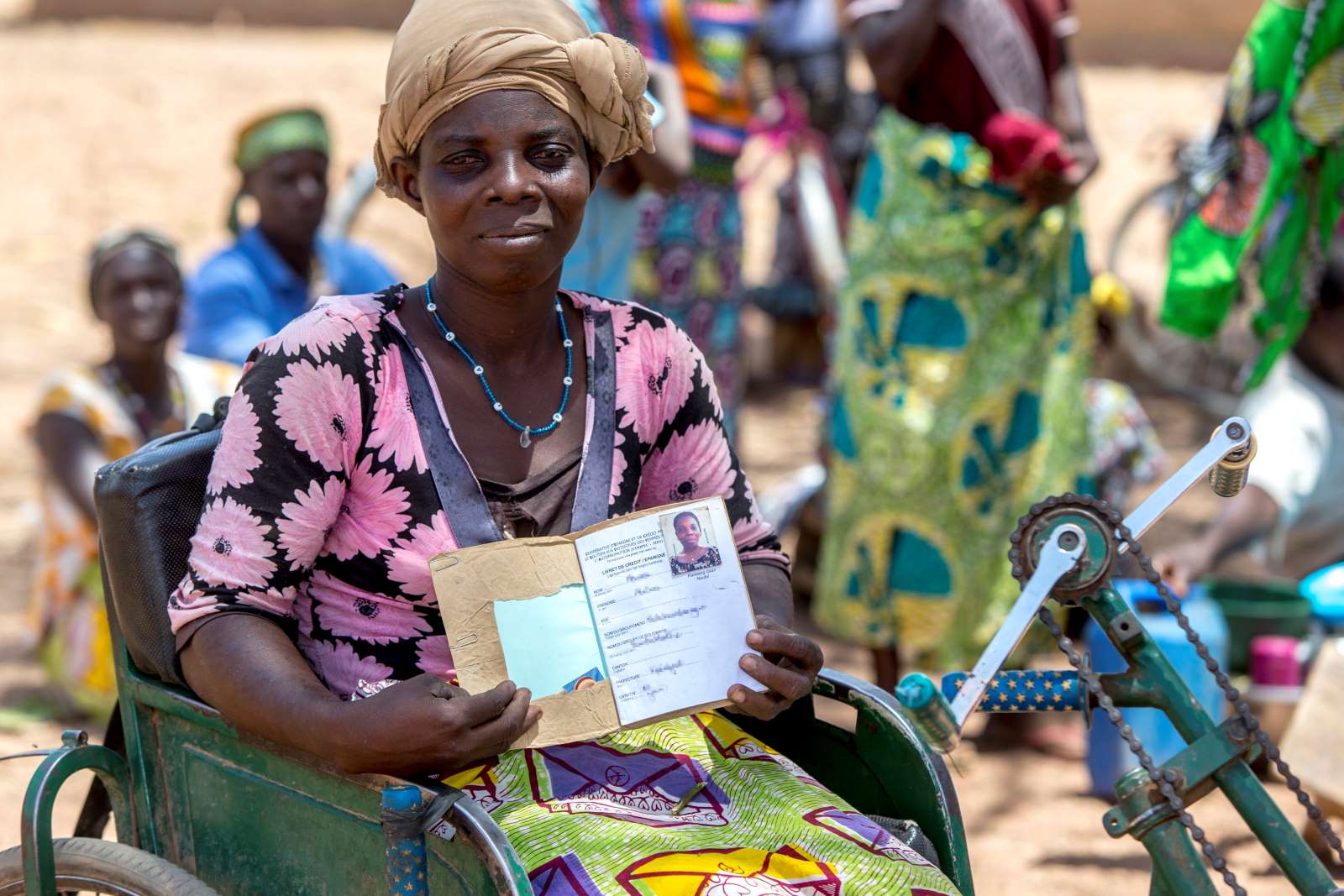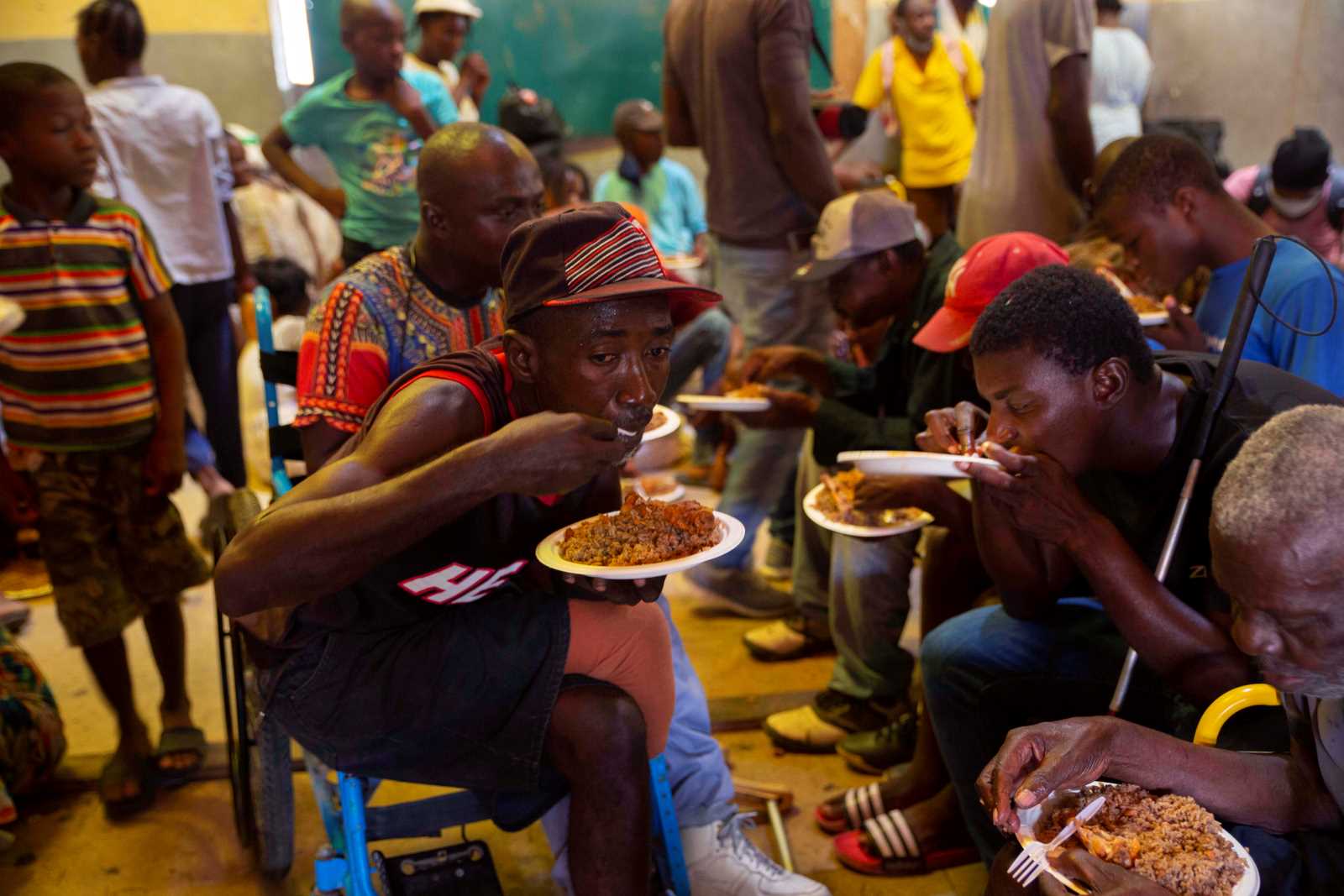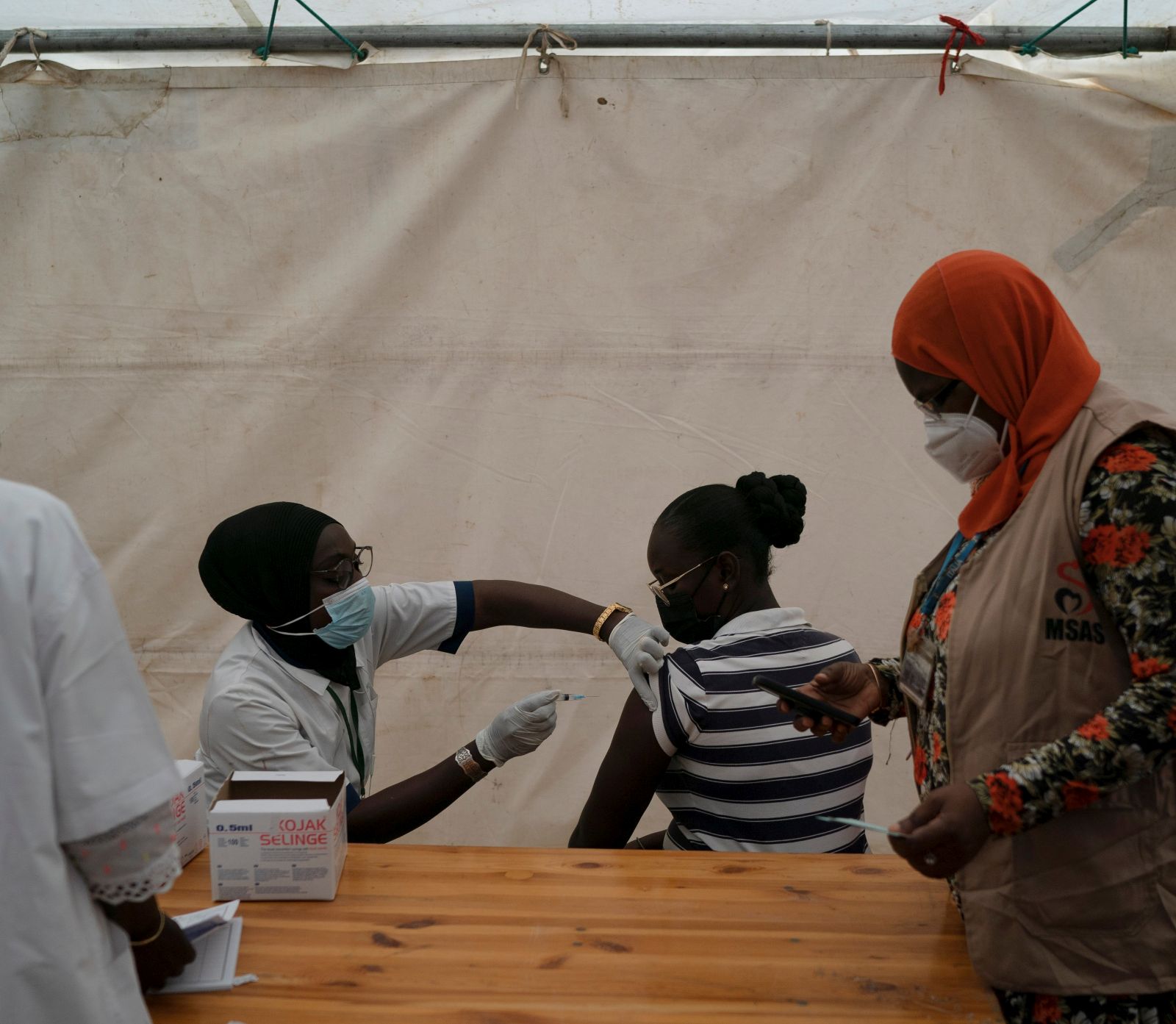Global Fund for Social Protection
Social security for all

Amid the Covid-19 crisis, the proposal for a Global Fund for Social Protection has recently been taken up by a major international actor for the first time: in September 2020, the French government teamed up with the UN Special Rapporteur on extreme poverty and human rights to stage a High-Level Expert Meeting on the “Establishment of a Global Fund – Social Protection for All”.
It is highly likely that creating such an institution will also be among the topics discussed by the G20 – the group of leading industrialised and emerging economies – and the UN Human Rights Council this year. The aim is to overcome financing problems that a number of low-income countries face in trying to provide a minimum level of social security for their population. That includes achieving basic income security and access to essential health care.
Each country ultimately needs to provide social protection from its own resources, of course – for example through fiscal budgets or social insurance systems. Due to economic difficulties, however, some countries are simply not in a position to do so – at least not in the short or medium term.
Present support
The international community already provides the governments of those countries with technical support for creating the administrative structures required for social protection systems. What is often lacking, however, are the means to ensure stable funding for programmes. People living in the poorest countries of the world cannot wait for sufficient domestic resources to be mobilised. They need protection now.
Even before the Covid-19 crisis, the International Labour Organization (ILO) flagged up the size of the gaps that still exist in social protection worldwide (ILO, 2017). More than two thirds of the world population (about 5.2 billion people) have limited or no access to basic social protection. The pandemic has now made it abundantly clear how important it is for countries to have functioning and solidly financed social protection systems. Lockdown measures, for example, have deprived many people of their livelihood. Even though social protection has been strengthened in many countries over the past year and a number of new protection mechanisms have been developed, the measures taken are mostly temporary.
A Global Fund for Social Protection could help low-income countries develop a long-term capacity to finance social protection programmes for their populations and thus prevent the further spread of extreme poverty.
Mandate and organisational structures
It is still unclear how likely it is that such a fund actually will be established in the foreseeable future – and if it is established, what its specific assignments will be. A number of suggestions are contained in a recent call for the establishment of such a fund by the international civil society alliance Global Coalition for Social Protection Floors (GCSPF). Its core task, according to the GCSPF, should be to co-finance basic social protection systems – on a transitional basis – for low-income countries that lack sufficient tax revenue and for countries in crisis (e.g. due to natural disasters or economic crises) that temporarily lack the capacity to fund such systems.
The GCSPF proposal envisages a mandate for the fund that would also include action to improve domestic resource mobilisation. The organisations that have signed the call believe it is important that the fund’s activities should be in line with the ILO Social Protection Floors Recommendation, which makes clear that social protection needs to be financed as a matter of principle from national resources. International aid can therefore only ever be an interim solution. The ILO recommendation also sets out a number of additional and equally important principles, including universality of protection and a rights-based approach.
Organisational aspects also need to be clarified. Among other things, for example, the question of where the new fund could be positioned in the institutional architecture of global social policy needs to be answered. One conceivable option would be a financing mechanism closely linked to the ILO and the World Health Organization (WHO), which are responsible for social protection and health-care issues within the UN. Another variant could be a fund established alongside the United Nations Development Programme (UNDP) or under the umbrella of the Universal Social Protection 2030 Partnership (USP 2030), a global alliance of governmental and non-governmental organisations.
The composition and operation of the fund’s decision-making bodies would need to be in line with the human rights-based approach and the Global Partnership for Effective Development Co-operation (GPEDC) guidelines. The GPEDC calls for principles such as country ownership, inclusive partnerships, transparency and accountability as well as adequate participation of civil society.
New global initiatives needed
Many details of a new global fund are thus still under discussion. But there is no doubt about the urgent need for action. The global community still has a long way to go to achieve Sustainable Development Goal 1.3 (implement nationally appropriate social protection systems and measures for all, including floors, and by 2030 achieve substantial coverage of the poor and vulnerable).
A financing and coordination mechanism at the global level could be an option to bundle international donors’ present efforts to help low-income countries develop stable social protection systems and thus make those efforts significantly much more effective. At the same time, a new institution of this kind would motivate donors to increase their financial support in this area. And this is indeed urgently needed.
Links
Global Coalition for Social Protection Floors, 2020: Civil Society Call for a Global Fund for Social Protection to respond to the COVID-19 crisis and to build a better future.
http://www.socialprotectionfloorscoalition.org/civil-society-call/
De Schutter, O., and Sepúlveda, M., 2012: Underwriting the poor. A Global Fund for Social Protection.
https://reliefweb.int/sites/reliefweb.int/files/resources/20121009_GFSP_en.pdf
Oxfam International, 2020: Shelter from the storm. The global need for universal social protection in times of COVID-19.
https://www.oxfam.de/system/files/documents/bp-social-protection-covid-19-151220-en_embargoed.pdf
Markus Kaltenborn is professor of public law and director of the Institute for Development Research and Development Policy (IEE) at the Ruhr University in Bochum, Germany, and a member of the Global Coalition for Social Protection Floors.
markus.kaltenborn@ruhr-uni-bochum.de
Laura Kreft is a junior lawyer and research assistant at the Faculty of Law at the Ruhr University in Bochum.
laura.kreft@ruhr-uni-bochum.de











